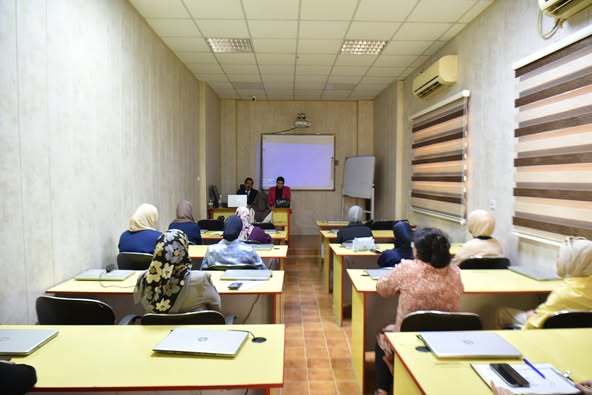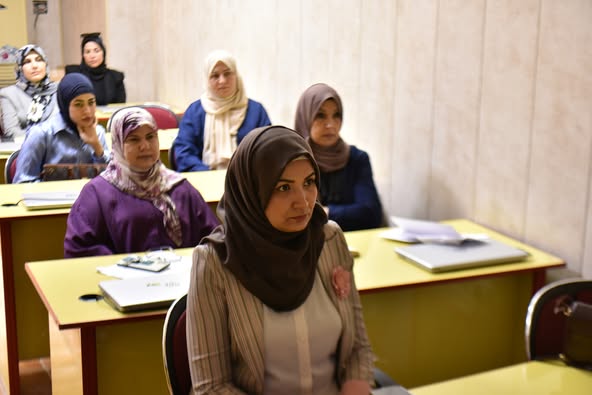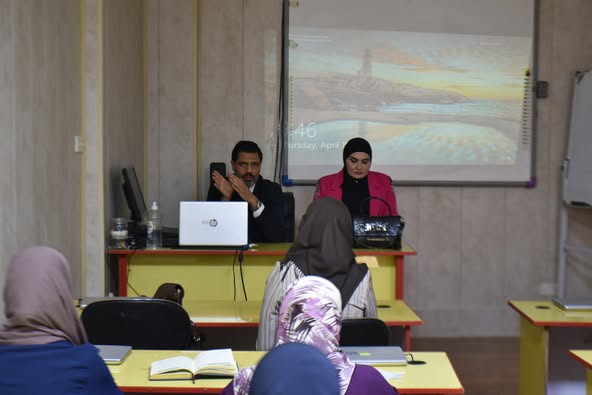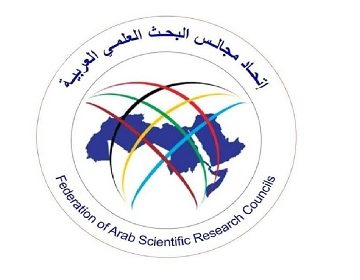Under the patronage of the Dean of the College of Science for Women, Professor Dr. Sameera Naji Khdim, the Rehabilitation and Employment Unit organized an awareness workshop entitled “The Scourge of Drugs and Their Danger to Youth”, delivered by Dr. Abbas Hadi Abd and Ms. Abeer Mohammed Abbas.
This workshop was part of the unit’s ongoing efforts to raise awareness about the dangers threatening the youth and to highlight the challenges impeding the development of a healthy, conscious generation.
The workshop addressed the issue of drugs from multiple perspectives. It aimed to educate attendees on the nature of these toxic substances, their various types, methods of manufacture and distribution, while emphasizing the profound harm they cause both on individual and societal levels. Presenters outlined the detrimental effects of drug abuse, demonstrating how addiction not only damages the body but also infiltrates the mind and spirit, gradually eroding a person’s cognitive, emotional, and social capacities.
Psychological consequences discussed ranged from anxiety and stress to severe depression and detachment from reality. The health impacts included general physical deterioration, damage to the nervous system, and chronic illnesses that can often be fatal.
The workshop also addressed the social dimensions of drug abuse, explaining how it threatens family cohesion, increases domestic violence and social fragmentation, and contributes to poor academic and professional performance—ultimately weakening one of society’s foundational pillars.
Economically, the workshop shed light on the heavy burden drug proliferation places on nations. This includes both direct costs—such as treatment and rehabilitation of addicts—and indirect losses due to decreased productivity, rising unemployment, and the escalation of drug-related crime. Furthermore, it explored how drug trafficking supports illegal economies and threatens national security and stability, particularly when smuggling networks and organized crime infiltrate societies.
The session concluded with a set of recommendations and practical strategies aimed at combating addiction and curbing its spread among youth. These included enhancing awareness through educational and media programs, integrating drug prevention concepts into school curricula, supporting treatment and psychological rehabilitation centers, and creating a safe and supportive environment to facilitate the reintegration of recovering addicts into society.
Participants also emphasized the need to enforce strict legal measures against drug traffickers, promote collaboration among security, medical, and educational institutions, and encourage youth-led volunteer initiatives that contribute to building a more informed and resilient community capable of resisting this destructive plague.











